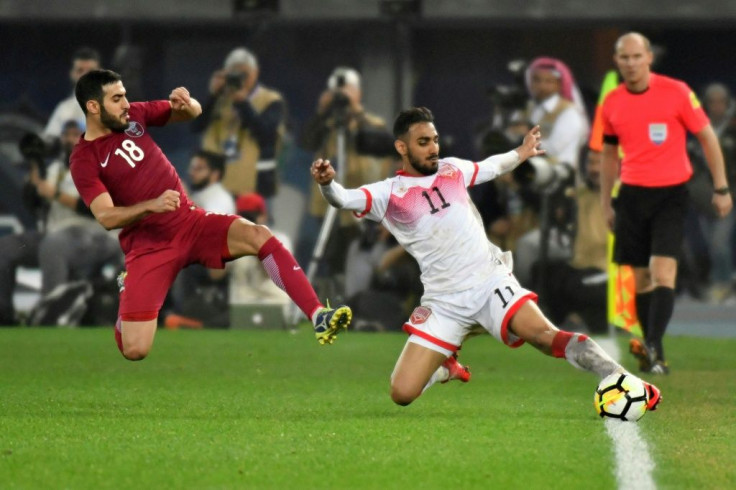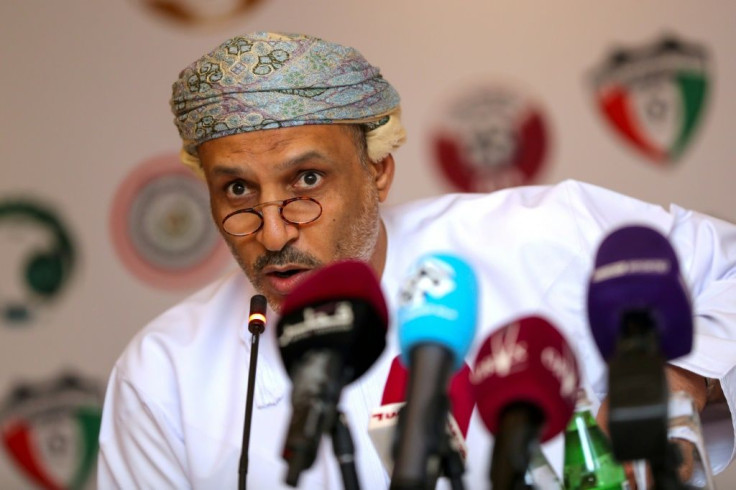Saudi, UAE, Bahrain To Play Football In Qatar, Signalling Thaw

Saudi Arabia, the United Arab Emirates and Bahrain will participate in this month's Gulf Cup football tournament in Qatar, organisers said Wednesday, signalling a thaw in their bitter two-year feud with Doha.
The three Gulf states as well as Egypt cut relations with Qatar in June 2017, accusing it of bankrolling Islamist extremist groups and of being too close to regional rival Iran. Doha denied the accusations.
In a U-turn, Saudi, Bahrain and the UAE announced they would accept their invitations to travel to Qatar to take part in the tournament.
It will now be held from November 26 until December 8, the Arab Gulf Cup Football Federation (AGCFF) said at a briefing in Doha, having been delayed by two days to accommodate Saudi players.
The trio will join hosts Qatar and visitors Iraq, Kuwait, Oman and Yemen for the tournament which will be redrawn Thursday to cover the extended line-up.
The announcements signal a possible easing of the bitter rift between Doha and the Riyadh-led group, which in 2017 imposed bans on shipping, trade, direct flights, overflights and land crossings with Qatar.
"Gulf soccer may be giving Bob Dylan's 1964 hit, 'The Times They Are a-Changin', a new lease on life," said Gulf analyst James Dorsey.
"The decision not to boycott is the latest indication that Gulf states may be gradually moving to a reduction of tensions that have divided the region's conservative energy-rich monarchies."
The boycotting countries had refused to participate in the previous Gulf Cup two years ago, which was originally scheduled to be held in Qatar just a few months after the crisis erupted.
But they took part when the tournament was subsequently moved to Kuwait.
"(We) officially accepted Saudi Arabia, the United Arab Emirates and Bahrain's participation in the 24th Gulf Cup in Doha at their request," said Jassim al-Shukali, vice president of the AGCFF in front of the logos of the Saudi and UAE soccer federations.
The Saudi-led alliance had so far defied pressure from Washington to lift its blockade on Qatar, which hosts a huge US air base.

Qatar has refused their demands to shutter Doha-based broadcaster Al-Jazeera, close a Turkish military base in the emirate and to downgrade diplomatic ties with Iran.
But fears of a wider regional conflict as Washington steps up economic pressure on Iran seem to have prompted the alliance to de-escalate tensions.
"The latest round of escalation by Iran in the Arabian Gulf has played a major role here in addition to the desire of the US administration to utilise the collective effort of the Gulf countries -- as a bloc -- to counter Iran," Gulf expert Ali Bakeer told AFP.
Washington and its allies have blamed Iran for recent attacks on key Saudi oil installations as well as a string of assaults on oil tankers in the Gulf. Tehran denies the accusations.
But there was no indication yet whether the Saudi-led bloc will lift its economic blockade on Qatar.
"The football diplomacy is a welcome step but it falls short of resolving the Gulf crisis," said Bakeer.
"The Qataris would like to see the blockade lifted as soon as possible and the end of other hostilities to show there is a serious will to end the crisis."
The development prompted a mixed response from Qataris, with many welcoming the move but calling for an immediate end to the blockade.
"They are talking about signs that the Gulf crisis is coming to an end," Hamad Lahdan al-Mohannadi, a Qatari engineer, said on Twitter.
"The only indicator by which you can say that the crisis will end is (the end of the siege)."
© Copyright AFP 2024. All rights reserved.





















